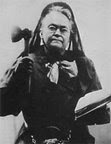Here’s my commentary on the Common Council meeting for September 4th. It was quite an evening.
Drive-Through. The lively topic Tuesday was Council’s review of a Planning Commission endorsement (4-2) of a drive-through window for liquor sales at the Westsider. (I posted previously on the Planning Commission meeting where this recommendation was issued.) After a presentation from the Westsider’s owner, Council members and citizens discussed the drive-through.
What a wacky experience to watch one Council member badger others, fail to answer questions courteously, interrupt others frequently, and display a narrow, rigid demeanor almost all evening. That posture never plays well in person or on television, and it’s a quick ticket to political self-marginalization. (Although, quite candidly, I’m beginning to think that’s a destination already familiar to him.)
The best exchange of the evening was when that same Council member tried to distinguish between alcohol sales at Sentry (of which he apparently approves) and Wal-Mart (of which he likely does not). He was asked the clever, insightful question, “What’s different between Sentry and Wal-Mart” for sales procedures? His reply was to say that the question was a “loaded” one. What’s that reply supposed to mean? I’ll tell you what it means: it means someone asked you a perceptive question, and you didn’t have any clear, rational, convincing answer. It’s only loaded because you couldn’t provide a worthy reply.
Two things became clear: (1) someone didn’t approve much of alcohol sales in general (including questioning the prior approval of Wal-Mart’s license), and (2) the problem, gosh darn it, is all these bad, bad college students. It’s part of the false view that they’re wrecking the town. It’s like watching someone’s belligerent, when-I-was-a-kid-we-ate-bugs-for-supper uncle prattle on about how no one understands anymore. It conveys the impression of someone who might, at any moment, start complaining about how the town’s infested with shiftless, no-good punk kids.
One of the arguments against the drive-through was the Council member’s contention that he had talked to many people, and no one supported the idea. Too funny. Here’s someone who seems oblivious to the concept of selection or situation bias. It’s predictable that everyone says that to him. Selected acquaintances often either agree with one’s views on a subject, or know enough to pretend that they do.
This sort of approach has no broad-based appeal, and would not succeed city-wide. The best one will get out of this angry, frustrated delivery is to be on the losing side of a 6-1 vote in favor, which is what happened regarding the vote on a drive-though for the Westsider. The approval was a good decision, supporting sensible restrictions as proposed from a respected, established owner.
Banners in Town. Ms. Kienbaum suggested that businesses be allowed to display banners, to promote their merchandise, etc., and that the display of banners be impartially enforced. It’s a sensible, free-market friendly approach.
Oh, but there are aesthetic objections, and so one Council member insisted that the thirty-day limit on banners be enforced, lest the city be awash in signs and banners. That’s signs and banners, as opposed to vacant store fronts. By the way, why is thirty days’ time acceptable, but not thirty-one? It’s because one has to draw the line somewhere. Fair enough; let’s draw it where merchants have more opportunities to attract customers. If customers disapprove of banners, they’ll ignore them, or complain to merchants directly about them, and the incentive to display banners will disappear, and merchants will no longer buy them.
Why is this sort of petty restriction the government’s business? Perhaps, it’s because society would not accept the restriction, so someone badgers a municipal body to restrict private activity through municipal ordinances to enforce a narrow vision on others. Instead of a spontaneous order and a robust society, you have a hectoring, regulating, nanny state.
Apparently, some business people have used sandwich boards instead of banners, to get their message across. That, also, was too much for someone, who urged citizens to call the city and report supposed sandwich-board violators. Quick message to those involved: if you’re complaining about sandwich boards to the city, you have too much time on your hands, and should stop talking, and find something constructive to do.
(Ms. Kienbaum was definitely the saving grace of the evening. Do you wonder if she goes home at night and asks herself, “What’s wrong with some of these people?” No, I’m sure she doesn’t; it just wouldn’t be polite. That wouldn’t be her question; it would be my question.)
Nominations Committee. The key insight here was from Planning Board member Kristine Zaballos, who noted that when citizens have to interview in public for a public board, it’s a stressful experience. I see her point, but I wonder if there’s a way in which this prepares people who have a public role for potentially robust criticism? (Criticism that, as readers know – I support.) I’m not sure, though, that public interviewing is necessary, or the only way to assure that citizens selected for a public role are inured to public criticism. In any event, Mrs. Zaballos’s remarks conveyed the clear impression of having thought carefully about the nominations process.
A quick question for all concerned. By the time a citizen (not Mrs. Zaballos) is on four boards, is that person still an amateur in a public role? Aren’t you almost semi-pro by that point? (I’m teasing — be on as many as you feel, and others feel, you can productively manage.)
What We Know. What do we know, at the end of the night? That someone doesn’t like alcohol sales, doesn’t seem much to like the university, and doesn’t like banners from businesses because they just spoil the look of the town.
Where do these ideas and attitudes lead? They’re a combination of an alcohol-restricting Carrie Nation, a university-battling Ahab, a prying Mrs. Kravitz, all joined with the mortar of no-commercial-advertising restrictiveness.
That direction would place Whitewater right in the vicinity of the mess we’re in now, I think.



